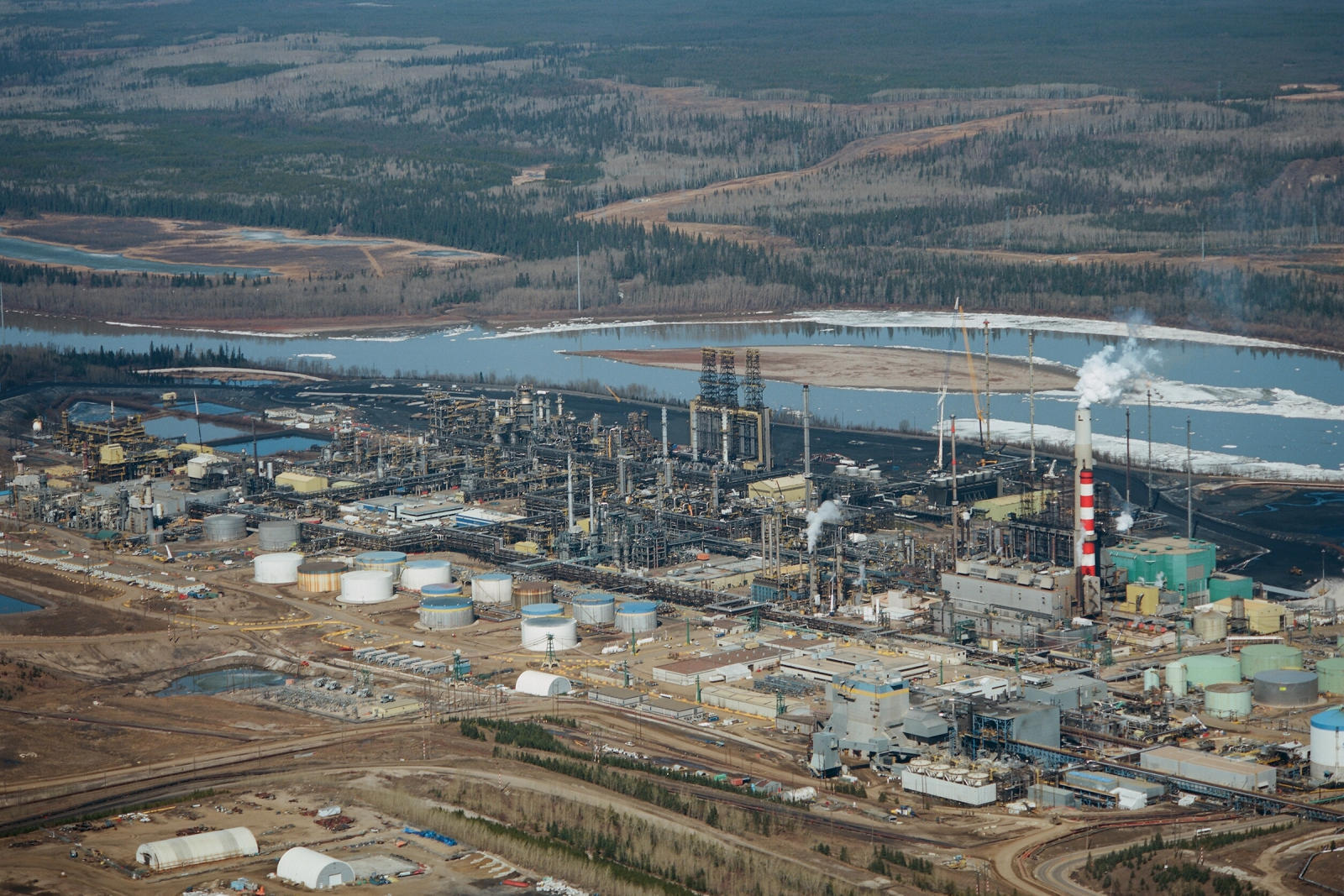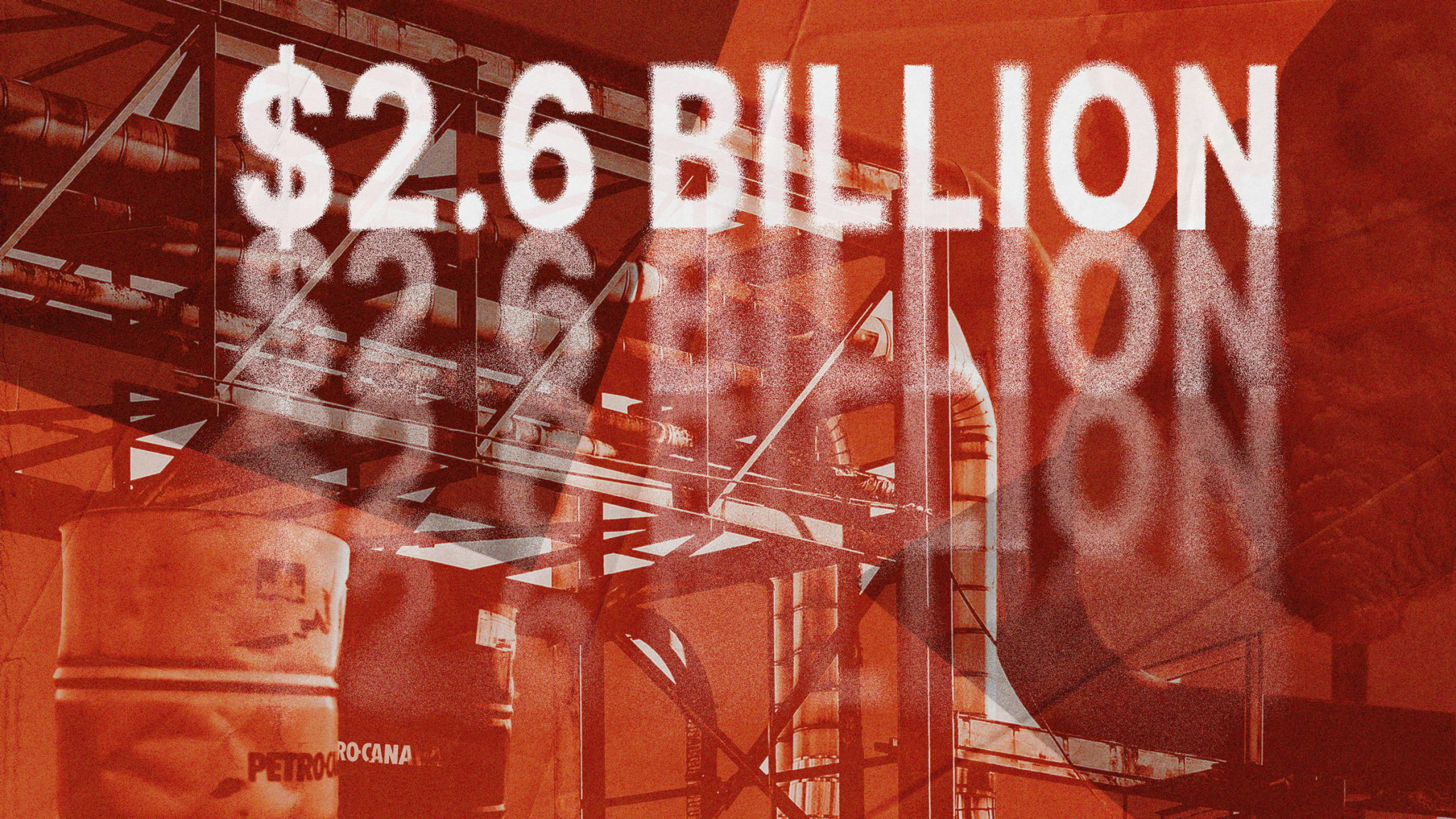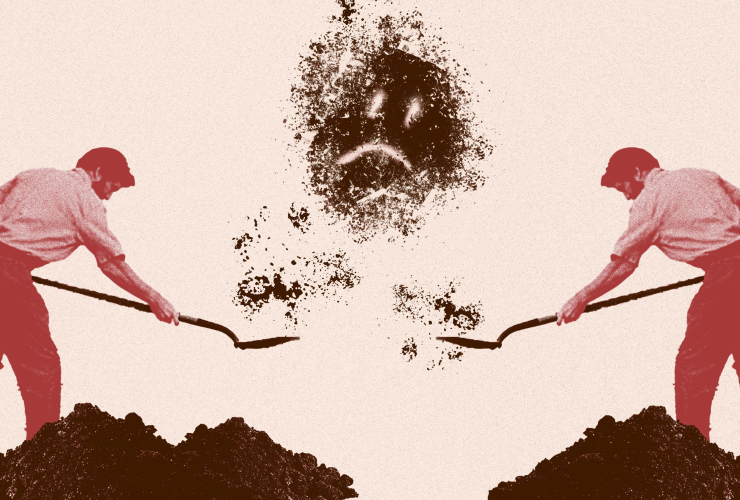Oil giants lobbying the federal government netted $2.6 billion over the past 11 years. That figure comes from self-reported data filed by 11 of the country's largest oil and gas players in the federal lobbying registry, a joint investigation by the Investigative Journalism Foundation and Canada’s National Observer has found. Federal lobbying rules require companies that lobby to report how much money they were awarded by each level of government.
Our investigation reveals more than $951 million of the money paid to the 11 companies we tracked came from the Canada Revenue Agency (CRA). The CRA wouldn’t reveal exactly what these funds were for, citing privacy reasons. However, Canada’s National Observer previously reported more than $1.3 billion was granted to all oil and gas companies by the CRA through the Canada Emergency Wage Subsidy. Similar subsidies were provided to many Canadian companies across all sectors during the first two years of the pandemic. CNO and IJF contacted the companies we examined to request comment on their lobbying efforts. Only Enbridge and Shell sent statements in response. Both said lobbying is crucial to keep lines of communication open between corporations and government.
Even after factoring out CRA funds, the amount of public money given to the 11 oil and gas companies studied in our investigation surged, more than doubling from 2019 to 2021, the data shows.
Funding levels were high during the years when Stephen Harper was prime minister, reaching a maximum of $285.6 million in 2013. They dipped by more than half in 2016 after the Trudeau Liberals were elected, the data shows.
Now they are once again on the rise. In the past two years alone, excluding CRA funds, the number of tax dollars funnelled to the oil and gas companies we studied leapt from $69.7 million in 2019 to nearly $177 million in 2021 for projects as varied as carbon capture technology, abandoned well cleanup and supporting Newfoundland and Labrador’s offshore oil industry.

When asked for comment, the federal Environment Ministry directed questions to the Natural Resources Ministry. The Natural Resources Ministry emailed a statement saying investment in carbon capture, storage and utilization (CCUS) is vital to reduce carbon emissions that cause climate change.
The federal government’s reasoning was laid out in a March opinion piece published in Canada’s National Observer. It defended the federal government’s plan to develop an oil and gas industry tax credit for the development of CCUS technology to reduce emissions from high-polluting industries such as concrete, steel, plastics, fuel and hydrogen. The federal government is upping the amount of money available for research and development in that area.
The flow of funding doesn’t sit well with environmental advocates who believe the money would be better spent on clean energy alternatives like wind and solar. Keith Stewart, senior energy strategist at Greenpeace, thinks the surge in government funding in the past two years, if not related to COVID-19, is likely a political move.

“I think what we’re seeing is the Liberals are offering the carrot of funding for some of this stuff — the oil and gas well cleanup, the funding for carbon capture — to try to buy down their opposition,” Stewart said in an interview.
Of the 15 companies we researched, our investigation found 11 reported they received funding from various levels of government. Nine disclosed lobbying communications in the last year. (The two companies that did not report lobbying in the past year — Arc Resources and MEG Energy — could have lobbied in previous years or could have as of the research date not filed their monthly communications yet.) Lobbyists who are paid to communicate with public office holders about new laws, legislative proposals or other government programs on behalf of a company must register with the federal government, follow a code of conduct and report certain meetings with those office holders.
The amount netted by 11 of the largest players is not a complete accounting of the enormous sums governments and arm’s-length agencies have poured into oil and gas companies, whose products are among the main drivers of climate change. Fossil fuel companies that don’t lobby, or pay industry groups like the Canadian Association of Petroleum Producers (CAPP) to lobby for them, do not show up in the registry and do not have to report how much they receive.
However, most of Canada’s largest oil and gas companies do lobby, so the registry numbers are useful to identify trends in government funding.
Of the total funding the largest oil and gas companies reported receiving between 2010 and 2021, more than $1.28 billion came from the federal government and another $1 billion came from provincial governments and agencies, data pulled from the federal lobbying registry shows.
Meanwhile, the oil and gas sector, which is responsible for more than one-quarter of Canada’s planet-warming greenhouse gas emissions, is making massive profits due to high oil prices and the war in Ukraine. Though oil prices briefly turned negative in the early days of the pandemic, their recent astronomical gains prompted U.S. President Joe Biden to say last June that oil and gas giant Exxon “made more money than God this year.”
The Intergovernmental Panel on Climate Change has warned humanity is running out of time to make the deep cuts to greenhouse gas emissions needed to avoid devastating climate change, which is already being felt around the world. Canada has pledged to reach net zero by 2050, which includes capping and reducing emissions from the oil and gas sector.
The federal government has taken some steps to make oil and gas expansion less attractive; for example, the introduction of carbon pricing for industry in 2019 and, more recently, imposing “best in class” emissions control measures on new projects.
However, as our investigation shows, the government continues to back increased oil and gas production and pour money into the industry. Canada ranks worst among G20 countries for publicly financing fossil fuels, proportionate to the size of the economy, with companies in the sector receiving at least $4.8 billion in support between 2018 and 2020, the International Institute for Sustainable Development (IISD) reports. Tax breaks add to government support.
Efforts to reduce subsidies elicit constant backlash from the industry, which, despite recent windfall profits, continues to press for more while spending little on emissions reductions.
Meanwhile, the sector’s emissions have increased by 74 per cent over the past 30 years, mainly due to the oilsands, where the extraction of oil and gas causes more emissions than conventional methods, the government says.
The federal government promised in 2019 to end “inefficient” fossil fuel subsidies by 2025, but Canada never specified which subsidies fell into that basket, said Vanessa Corkal, senior policy adviser at the IISD, a Winnipeg-based think tank.
There is no standard definition for inefficiency, so countries have been left to define what that means, she said. “Canada has not released a public definition of how they're approaching it,” Corkal added.
Despite those promises, the numbers obtained by IJF and CNO show funding to oil and gas companies is rising.
In its registry filings, Suncor Energy reported the most government funding, more than $869.6 million between 2010 and 2021, with Shell Canada reporting the second-highest amount at $705.4 million and TC Energy reporting $332.7 million on the lobbyist registry, the investigation found.
Because there are numerous loopholes, the numbers pulled from the federal lobbying registry may only be the tip of the iceberg, says Duff Conacher, co-founder of Democracy Watch.
“It’s called the Lobbying Act, and it should be called the ‘some’ Lobbying Act because only some lobbying is covered, so only some lobbying is disclosed,” Conacher said in an interview. “Only some lobbying is required to be ethical because the Lobbyist Code of Conduct only covers lobbyists who are required to register.”

For example, unpaid lobbying by retired CEOs or volunteer board members does not need to be registered.
“When you add (the loopholes) all up, it means secret, unethical lobbying is legal because you can lobby without registering, and if you are doing unregistered lobbying, then the Lobbyist Code of Conduct does not apply to you and you can lobby unethically, meaning you can do favours for people you are lobbying, like fundraising (or) campaigning,” Conacher said.
Some of the country’s biggest oil and gas companies do not lobby and therefore are not required to report any government funding they receive in the federal lobbying registry.
For example, Crescent Point Energy is a large oil and gas company that didn’t report any federal lobbying, and therefore is not registered on the Federal Registry of Lobbyists. Crescent Point, which predicted it would generate free cash flow of $1.1 billion in 2022, is a member of CAPP, the industry’s most powerful lobby group.
Crescent Point officials said in an email that the company has been awarded a grant under the low-carbon economy challenge, but that those funds have not yet been received. The company also participated in the federal inactive well program, administered by the provinces of Alberta and Saskatchewan, a representative said in an email. The company is registered on the lobby registry in Saskatchewan but nonetheless is not listed in the federal lobbying registry as having received any government funding.
This story contains important
This story contains important information. However, it would provide more information if the authors compared the billions government gave oil giants to the sums the government gave non-fossil fuel corporations. Research that reduces carbon emissions or increases our understanding of carbon capture is legitimately regarded as a contribution to mitigating climate change. However, it is reasonable to presume oil corporations, who want to stay alive, and are making great money in the business likely have sufficient incentive to do this without government $. Money needs to be spent cleaning up the mess created in the extraction of fossil fuels since it will contributes to the health of Canadians and ecosystems. Companies cannot see this work as giving them anything more than the good will of Canadians which they don't apparently think they need. They also talk good corporate social responsibility talk without walking the walk so the federal government could usefully create a set of criteria which regulated how much of its profit a corporation has to put into cleaning up its own mess. It is one thing for Canadian taxpayers to help worst off companies clean up messes they created which they don't have the means to clean up. Justice is not well served when governments let companies walk away from their messes carrying their many bags of profits.
Agreed and what's mystifying
Agreed and what's mystifying to me is the AMOUNT of deference, and the degree of sucking up that's done toward big oil and gas corporations when they are simultaneously being variously, satisfyingly sued for deliberately and with malice aforethought, generously financing the climate science denialism of the last few decades that STILL continues apace, regardless, and which still very much pervades public perception. In other words, a crime against humanity if there ever was one. In the process they have become the poster boys for the wildly lucrative public relations industry that has taken basic advertising to a whole other level of smoke and mirrors, modelling the effective distortion of truth before algorithms cam along to finish the job. It's capitalist corporate thuggery at its absolut worst, cavalierly laying waste to the precious environment, and ultimately the human species as they take full, shameless advantage of literally having us all over a barrel. What efforts have been made to address their mess have been primarily done under duress or to further polish their "brand." They're like the current CPC, essentially dishonest, greedy, unethical, and furthermore, unrepentant. They just don't care.
But I take heart from what Keith Stewart of Greenpeace says, that he thinks the government is buying them down with carrots before the stick of a coming cap on emissions. As far as that brand of theirs goes, they've been outed and are starting to inch toward Putin's pariah status now where they belong.
Great article.
Great article.
There is one element that neither industry or government has more than just a finger or two of control over, and that's consumer demand trends. While the industry colluded with car manufacturers to promote freeways and near absolute car dependency in our cities, today Tesla has become a status symbol, an outward symbol of independence. Those of us who don't habitually subscribe to trendy consumer objects or lifestyles that involve, for example, being seen in a $100K vanity EV or taking a couple of tropical beach vacations a year are also likely to have an aversion to debt.
The fact remains that EVs are in greater demand, especially in the deeply car dependent suburbs, and will come down in price once supply chain delays are resolved. Ditto homes in walkable and transit rich neighbourhoods. Suncor and Trans Mountain (or any car maker, EV or not) cannot control the fact that 55% of all commutes in Vancouver are now carless, and that trendline is continuing to go up. The public cost of car dependency is horrendous. The YouTube channel Not Just Bikes (affiliated with the Strong Towns movement) did a recent video on that topic.
https://www.youtube.com/watch?v=n94-_yE4IeU
The fellow that produces the NJB videos, who is originally from London, Ont., is focused mainly on car dependency and the high cost (read: subsidies) of suburbs and low cost parking. Car infrastructure consumes 40% of all the land in a typical North American city. He and his family moved to Amsterdam largely for the safe and convenient urban environment it offered as a place to raise a family. Check out his wide selection of interesting vids on that topic.
The war in Ukraine is also changing the rule of fossil fuels over the world. The rampant search for non-Russian sources of gas and oil plateaued as winter storage stocks were filled. The long term view in the EU is that it's now absolutely necessary to ramp up renewables. Germany, which already produces 50% of its electricity with renewables, is now laser focused on green hydrogen and greater electrification. It turns out the panic over Russian oil and gas was temporary, a stopgap measure.
The world price of oil is in a decline again now that a price cap on Russian oil is in place, which translates into less motivation for Canadian oil companies to propagandize the war as a path toward "energy" security by switching fossil sources to democratic countries. Carbon dioxide molecules do not apply for passports and recognize no one nation over another. And electrons are multiplying and displacing carbon, slowly but surely.
Switching energy types away from carbon is an economic act as much as it is political. The more EVs appear on the road, the less the number of gas tanks for tar sands products to fill. As for subsidies, would that renewables received the same generosity. Having said that, there was a photo op the other day with Justin Trudeau walking side by side with Doug Ford (go figure) glad handing the workers at a new Ontario plant making commercial electric trucks with a proportion of their content made up with Ontario green steel. Electric trucks providing essential services are part of a sustainable future. Both levels of government provided generous subsidies to both the plant and two steel companies to electrify.
It may be only one truck plant and two steel plants, but it's a good start.







Comments